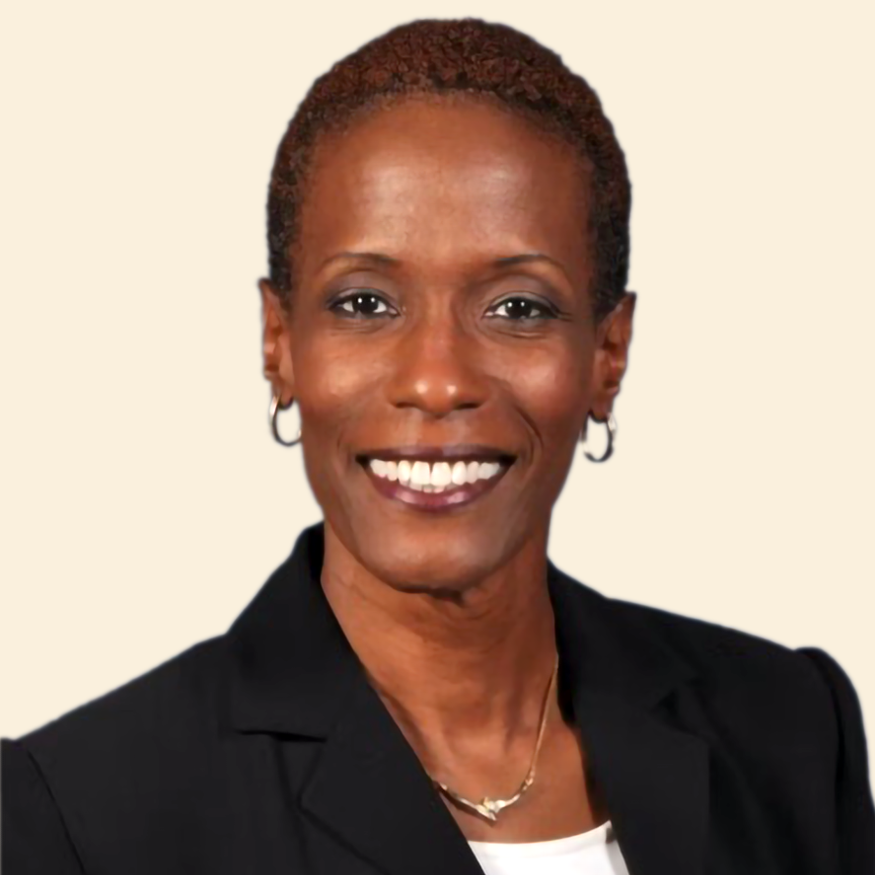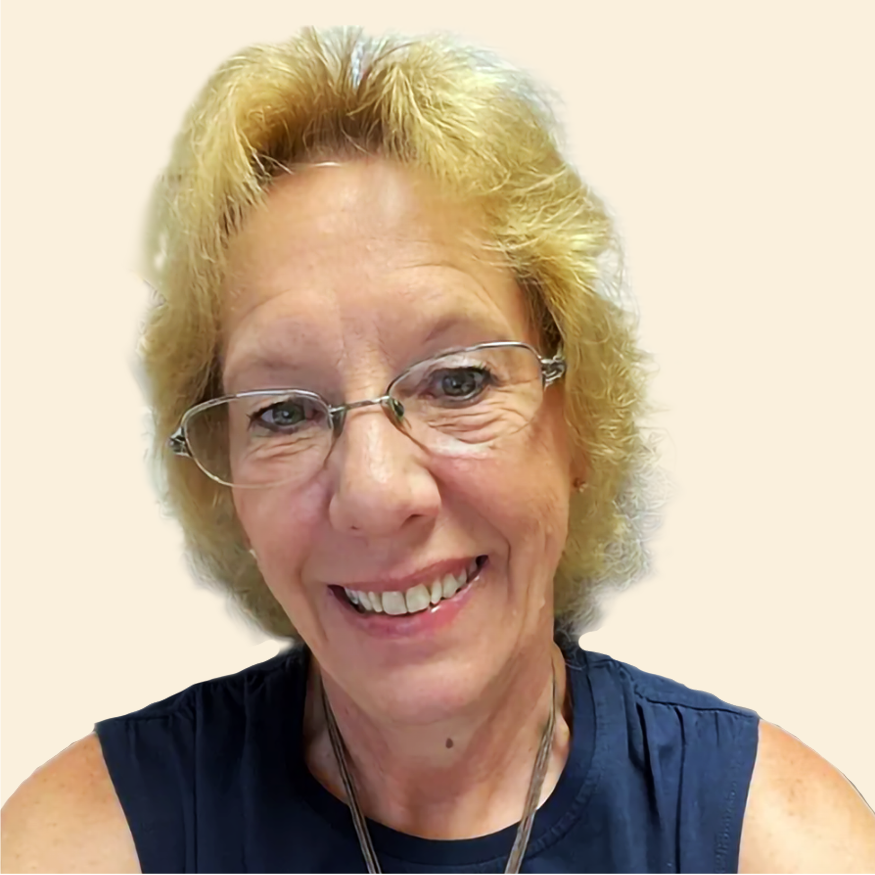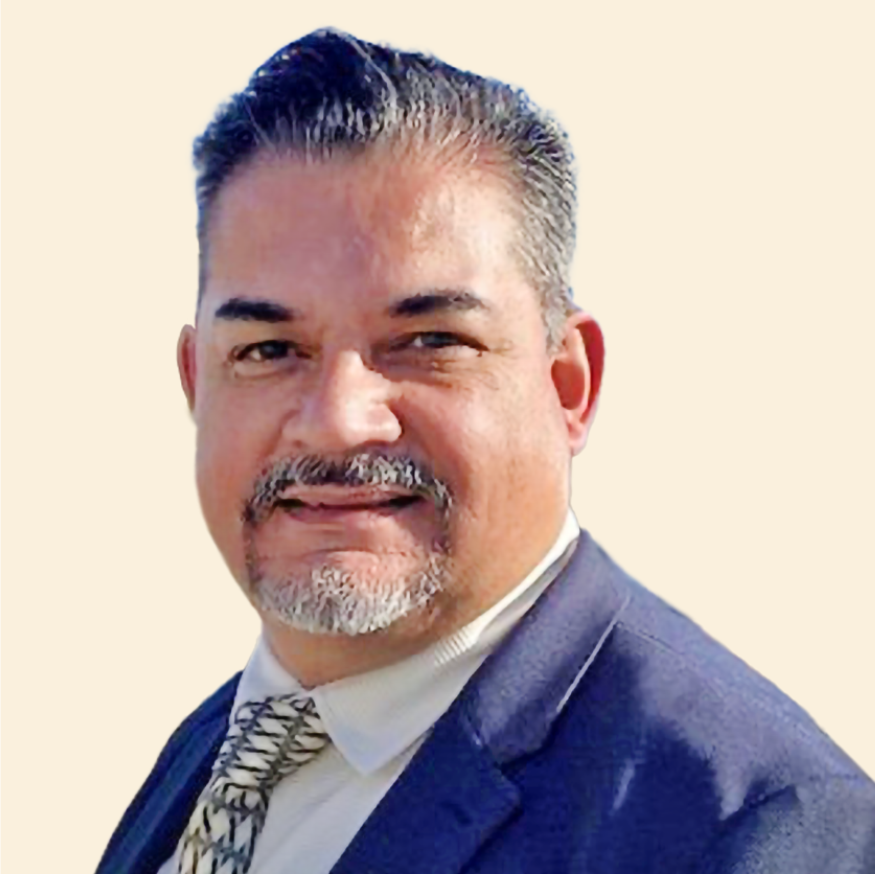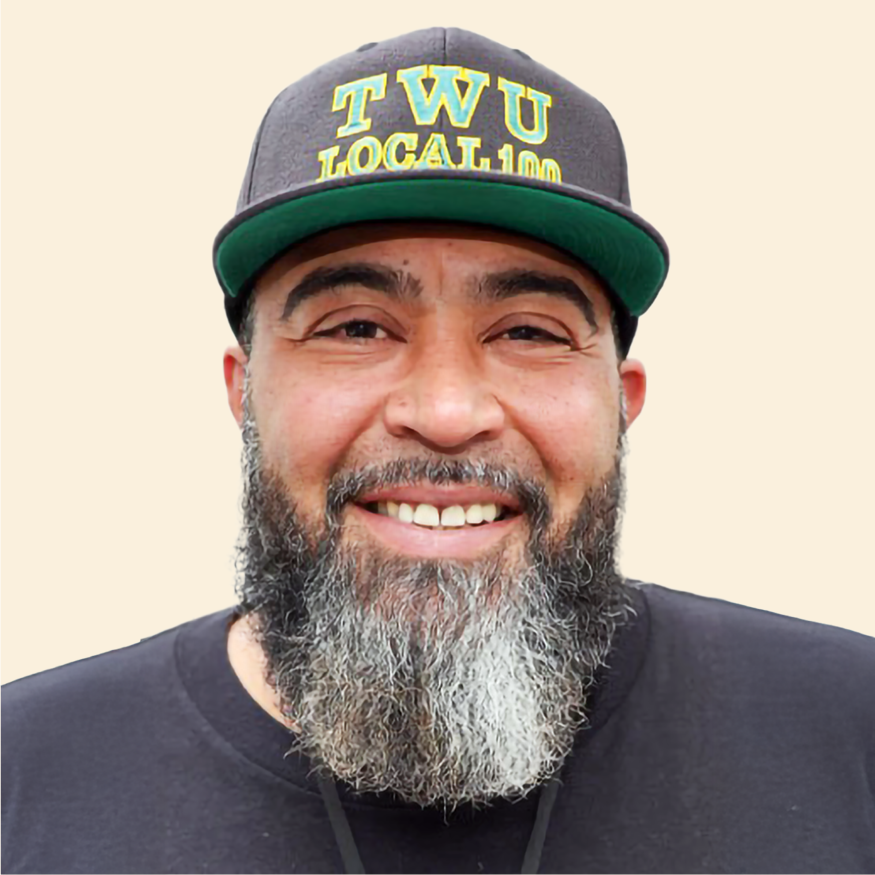Continuing to Serve — Veterans’ Transit Career Routes
Guided by a continued drive to serve, many veterans have built careers in public transportation, pursuing opportunities to apply their knowledge and training across a range of occupational areas, from bus and rail operations to maintenance and leadership positions. The dedication, discipline, and skills that veterans have developed through military service have helped many build fulfilling careers in the industry. For this Transit Career Story, TWC spoke with five veterans from across the country who have devoted themselves to careers in public transportation. Each offers their own perspective and reflects on the unique and shared experiences that have shaped their routes from military service to transit.

Olivia Jones
Director, Operations Control Center and Training
CapMetro, Austin, TX
Military Service
United States Army
Texas Army National Guard
First Industry Position
Bus Operator

Leesa Lester
Transit Director
Southern Iowa Trolley, Creston, IA
Military Service
United States Air Force
Air National Guard
First Industry Position
Dispatcher
Transferable Skills that Support Individual and Organizational Growth
Veterans in the industry regularly highlight the direct connection between skills gained in the military and their successful transition into transit careers. One of those veterans is Salvador “Sal” Llamas, the current General Manager and CEO of AC Transit (Oakland, CA). Sal recalls a transition orientation class at Marine Corps Base Camp Lejeune, where he was preparing to leave the Marines. It was there that he discovered his experience as a Staff Sergeant, leading a Motor Transport Platoon, qualified him for supervisory and managerial roles in civilian life. “They showed me how to translate the exceptional training and experience I gained in the Marine Corps into civilian terms,” Sal explains. “Beyond the mechanical skills, each time I prepared operational and tactical plans, reviewed intricate details, and briefed officers and senior sergeants, my time in that role actually refined my public speaking and leadership abilities. That hands-on experience in my early twenties laid the foundation for my career in public transit, teaching me how to inspire teams, think strategically, and execute a plan from start to finish.”
Olivia Jones, Director of Operations Control Center and Training at CapMetro (Austin, TX) was an Army Sergeant; during her military service, she learned how to operate a bus and also worked extensively with radio and telephone communications equipment. Early in her transit career, this experience steered her toward her eventual transition from bus operator to radio dispatcher, while she was also a member of Amalgamated Transit Union Local 1091. “A career in the military gives you access to different things, not just that one job that they train you on, but it also provides you [with] the opportunity to gain experience in other areas,” she says, emphasizing that “the structure of the military was definitely the basis of the success that I have experienced in public transportation.” Leesa Lester, Transit Director at Southern Iowa Trolley (Creston, IA), likewise drew on her military training as a Staff Sergeant when she shifted career paths. “My career in the Air Force helped me develop a lot of the qualities that you need to be a dispatcher.” While stationed in Japan, she gained experience in airfield management, developing operational skills that would also support additional roles she took on later in her transit career.
Alex Ramos, Outreach Coordinator with TWU Local 100 and Light Maintainer with the Metropolitan Transportation Authority-New York City Transit, reflects on the connection between his military service as a Sergeant in the infantry and his current work at his agency. He acknowledges the challenges of transitioning from military to civilian life, as well as the ways his military skills ultimately prepared him for success in the workforce. He describes how the confidence he had gained in the Marines helped him when he decided to move from his initial position as a cleaner into a jointly sponsored labor-management electrical training program, where he graduated as one of the top students in his class. “I [was] nervous in the beginning, but once I got in, I learned it, tackled it, and I ran with it. One of the best decisions I ever made.” He also credits his success to another lesson from the military. “Marines are never late,” he says, and in his 22 years as an MTA-NYCT employee, Alex has never been late for any shift, task, or event. Leesa further emphasizes the importance of punctuality based on her Air Force service. “Being in the military, you were on time,” she says.
Tim Tarrant, National Vice President for Commuter and Passenger at the Brotherhood of Railroad Signalmen, served as a Sergeant in the Marines and has gone on to work on safety issues through his agency and his union career. He similarly notes beneficial outcomes of military experience and highlights the direct connection between a veteran’s sense of safety and the transportation industry, noting, “The safety culture and understanding 24/7 was something that you really had to do when you were in the military, so it wasn’t a hard training or a hard transition when I went into the rail industry.” Like Tim, Alex has found that the skills and experiences from the military have supported both his agency and union work. He is able to contribute as a leader, especially in environments with many different types of people, and he is able to “structure a meeting, structure a group, structure a movement.”

Salvador ‘Sal’ Llamas
General Manager and Chief Executive Officer
AC Transit, Oakland, CA
Military Service
United States Marine Corps
Marine Corps Reserves
First Industry Position
Equipment Maintenance Supervisor

Alex Ramos
Outreach Coordinator Transport Workers Union Local 100/Training & Upgrade Fund; Light Maintainer
Metropolitan Transportation Authority–New York City Transit, New York, NY
Military Service
United States Marine Corps
First Industry Position
Car Cleaner

Tim Tarrant
Vice President for Commuter/Passenger
Brotherhood of Railroad Signalmen, Front Royal, VA
Military Service
United States Marine Corps
First Industry Position
Signal Maintainer
Sal also cites critical leadership skills that help ensure veterans focus on organizational direction and development. Reflecting on the responsibilities he has had in public transportation, Sal notes that the military helped him grow from being a “young man at 19 years old to being a leader and commanding a platoon of 100 or more, working with colonels and high-level officers, and really thinking very strategically is what played a big role.” This mindset continues to guide him as he makes plans that impact AC Transit. “I need to be able to visualize the mission, communicate it effectively, know what success looks like, and hold myself accountable for getting there, and then have my team help me figure out the details,” he adds. Like Sal, Olivia emphasizes the ongoing impact of the skills gained in the military, including her time as a medic in the Texas National Guard while still employed with CapMetro, and their applicability throughout her transit career: “Transit grows you, and everything that you have learned in the military, from doing a push-up or buffing a floor to handling yourself in areas of conflict or difficult situations, all of those skills translate into skills in transit.” Beyond specific skills, Leesa notes that there is a tremendously valuable overarching skill developed, that you “train yourself to do things that you really didn’t think you were capable of.”
Service to Colleagues, the Industry, and the Community
Lessons learned in the military about teamwork and supporting others continue to guide these veterans in their transit careers. When Alex was promoted to Outreach Coordinator at TWU, he built on his experience in the Marines, where he had the responsibility to provide people with information, guidance, and task readiness. Now he assists others in pursuing successful career pathways through union-sponsored training programs: “I recruit people for these programs. I help facilitate all the training. I help people with promotional opportunities and elevate their skills… It’s my passion,” he says. Olivia moved into railroad operations 13 years into her career, taking on various leadership roles and gaining broader and deeper managerial experience, eventually returning to the agency where she had started as a bus operator years before. She reflects, “One of the most awesome experiences I have had here at CapMetro is coming back to see the growth of the people that I had invested in and watching where they’re going now. I am grateful to be in a place where not only are people pouring into me, but I get the opportunity to pour into them.” Tim emphasizes the strong sense of camaraderie and community within his union, which he correlates with his experiences in the Marine Corps. Relating to his worker advocacy role, he says, “I don’t wear work boots to work anymore… but metaphorically speaking, I’m carrying work boots for everybody else. I’m bringing them with me, and I’m able to speak for them. And that to me made the transition a lot more meaningful and powerful, because it’s the responsibility that you have to be able to speak for them… for a collective voice.”
That commitment to others directly connects to serving their communities, a commitment central to veterans’ motivation and career satisfaction, as they returned to communities of all types and sizes across the country. Though not a veteran herself, Dottie Watkins has observed this dedication among veterans throughout her 31 years in the transit industry, including in her current role as President and CEO of CapMetro, where she has worked with Olivia and many other veterans the agency has recruited. She has seen how veterans feel the pull to work in transit: “It’s that heart of service that makes public transit a great fit for veterans,” and it’s “a place where you can still feel like you are contributing.” In Iowa, Leesa felt drawn to the industry and recognized its importance to her rural community. “We help people in seven small counties. It just makes you feel good to know what we do every day… That’s what transit is all about, because we are helping people.” Sal started his transit career at LA Metro and then paused when he joined the Reserves after 9/11 and deployed on two combat tours in Iraq. After he returned home, he decided to focus on his career in public transportation, “because it does serve a community of people… that really depend on transit. We offer essential services that save lives, connect people to education, quality of life, and community engagement. I think that’s what attracts me to public transit, and why I’ve never left.”
From early in her career, Olivia recognized the direct connection between her military experiences and how she could assist community members in Austin, as well as in the other locations where she has worked throughout her career. “When I became a dispatcher, I used those skills, talking folks through a problem, providing them with information, being able to keep my communications efficient enough to let the person on the other end know that I understand what they’re saying, and getting them some help,” she reflects. Leesa notes that a connection to her community is one of the ways her goals in both her military and professional careers are quite similar. “It really doesn’t matter, big or small, we’re all providing the same type of service to those individuals that depend on us. Everybody wants to do something good in their community, and transit is definitely one of those things that is good,” she says. It is because of this type of commitment that Sal encourages the HR department at AC Transit to actively recruit veterans, “to seek out military candidates from the local reserve units, or go look for a base that has a transition department, or there’s a county VA offices that are there.” He and other veterans understand that those who have served are looking for ways to apply their talents and hard-earned skills to make a difference.
What the Industry Provides for Veterans
While veterans understand what they bring to transit and to their communities, they also cite how the industry has been and remains the best fit for them personally and professionally. Tim recognizes that his comfort level entering the transportation industry came from his upbringing and early proximity to it: “It was family. I’m third generation, and my son is a fourth-generation railroad worker, so that was part of the reason.” Olivia recalls that as a child in Baltimore, MD, a bus operator from her neighborhood was a well-respected member of her community. “I wanted the image and respect that I felt like he received from the community,” she says. Alex was originally drawn to transit because he sought stability, so he started as a cleaner at MTA-NYCT, where he committed to the role for 12 years while his children were young. “The tour that I had as a cleaner helped me raise my kids. The minute they were grown, I said, ‘I’m going to school,’ and I did. …So, I did 12 years doing homework, studying on my own, and taking advantage of these benefits,” eventually becoming a certified electrician, which led to the technical and training work he does today in the union and the agency.
Sal emphasizes public transportation’s ability of “bringing out the best of people,” and “allowing people to have autonomy to make decisions to bring innovation and creativity [to] evolve and change the organization.” The industry fosters growth that enables individuals to thrive through training and promotion, allowing them to enjoy long, satisfying careers. Olivia values this culture of growth and flexibility. “When opportunities presented themselves, I presented myself to opportunity,” she says. Leesa also shares this sentiment of being satisfied with her move to the industry. “I am certainly happy that I made that leap over here, because you can’t understand what transit’s all about until you actually get into it.”
The industry’s relative stability is also a draw, along with the benefits available to veterans after they decide to retire. Tim highlights the industry’s “continued need for growth due to such high demand,” where “there’s always going to be a need.” Olivia echoes this view based on her experience across agencies, including her human resources work at the Southwest Ohio Regional Transit Authority; she understands the industry’s need to grow and the opportunities provided by continued expansion. Sal and Tim emphasize the excellent retirement benefits available, and Alex recognizes his ability to continue working in the electrical trade even after he retires from his agency, having had a full and rewarding career. Given what this industry has to offer, Tim notes, “when you start here… you’re going to finish here.” As Leesa puts it, “once you hopefully get into it, you’re hooked. And I definitely got hooked.”
Getting Started in Public Transportation
Each of these five veterans, like so many more nationally, have continued their service through long and rewarding careers in the industry. Each has spent a minimum of 15 years in public transportation, and all of them plan to continue until retirement. Until that time, the industry will benefit from the invaluable skills, knowledge, experience, and commitment they bring to the industry and the communities they serve. We salute them and thank them for their service to country and community.
As these veterans’ journeys illustrate, public transportation offers a wide variety of roles with rewarding opportunities. Email the communications team at careerstories@transportcenter.org to share how you got started, what your journey has looked like, and who and what supported you along the way. Visit the Transit Career Stories page to follow our series on inspiring transit career stories.
Explore other veteran-related materials in the TWC Resource Center, including this Veterans in Transit case study.
Published on November 5, 2025





